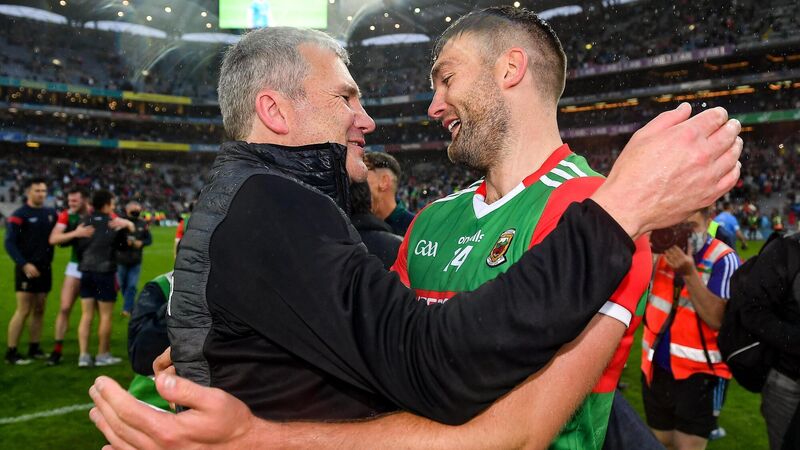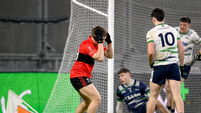John Divilly: The key Mayo management moves that ended an era

Mayo manager James Horan, left, and Aidan O'Shea after their side's victory over Dublin. Picture: Seb Daly/Sportsfile
After a decade of wonderful entertainment by the Dublin empire — where they set the standard, won All-Irelands and set previously unimaginable records — they’ve been ousted spectacularly from the 2021 championship at the penultimate hurdle.
Mayo have been a pebble in Dublin’s sandal over the last decade — annoying, constant and refusing to go away.











